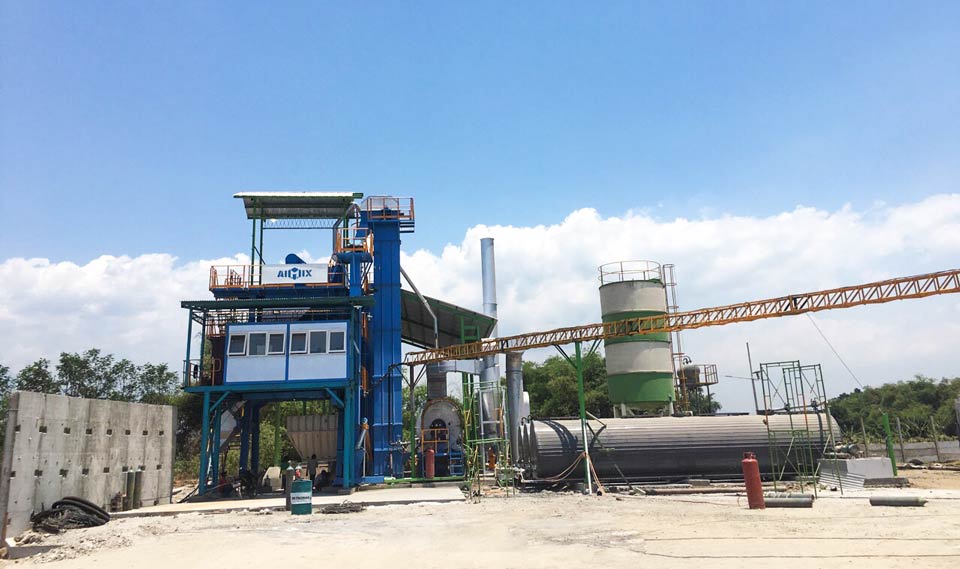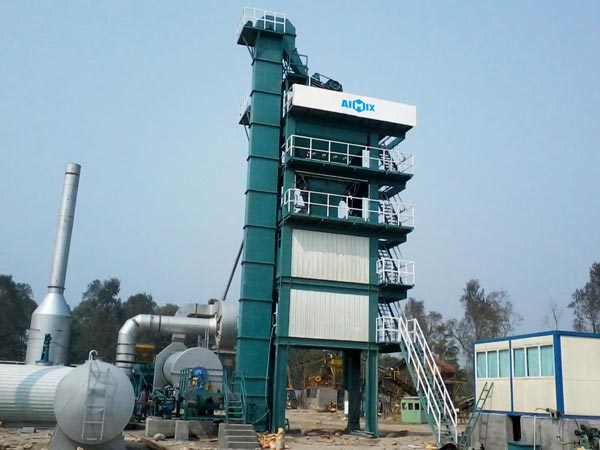When it comes to buying an asphalt mixing plant, businesses need to know whether a batch mix design or drum mixing design would best suit the asphalt manufacturing needs of their operation. In some cases, an Indonesia mini mobile asphalt plant might even be the best option. Mini mixing plants are certainly more affordable. In this article, we are going to talk about some of the differences between batch plants and drum plants for asphalt mix production.

Batch Asphalt Mixing Plant
With a batch plant, the asphalt mixture is manufactured in small, accurate batches. The batching process is repeated until the specified total volume of asphalt mix needed has been produced.
Here are some of the benefits of a batch plant:
• Production flexibility.
• The finished product is very high-grade because raw materials for each batch are accurately measured.
• Plant configurations are available in different designs for varying production capacity and batch size requirements.
• The intermittent manufacturing process means alternating batches of different asphalt mixes can be produced.
Drum Asphalt Mixing Plant Indonesia
Drum mix plants Indonesia allow asphalt mix to be manufactured round-the-clock via a continuous process. Silos are required to temporarily store the asphalt mix before it is distributed to construction sites in mixing trucks.
Here are some of the benefits of a drum plant:
• High rate 24/7 asphalt mix production — top models can output 800+ tons per hour.
• The continuous process is ideally suited for manufacturing large quantities of homogeneous asphalt mixture.
• For double drum configurations, aggregates flow through the outer shell before reaching the hot air inside the main mixing chamber — this setup reduces energy running costs.

Asphalt Mixing Plant Components
While batch plants and drum plants are configured differently and have many different components, there are some components that they have in common. These components include cold feed bins, drying chamber, storage silos, dust collection system, and liquid asphalt storage tank. Storage silos are added to batch plants to boost throughput, be they require insulation, and sometimes an external heat source to stop any temperature loss. The dust collection system is an essential component of both plant types. It is sometimes called a baghouse and its purpose is to capture all fine dust and sand particles to prevent excess pollution during asphalt mix manufacturing.
The good news is that those experienced in the world of asphalt production will be able to manufacture high-quality mixes in either type of plant. The main benefit of opting for a drum mix asphalt plant is the increased production rate. Manufacturing facilities that need to meet large demands for ready-mix asphalt from their clients need mixing equipment that can run round the clock. As previously mentioned, some of the high-end plants for sale have production capacities exceeding 800 tons per hour.
For construction business in Indonesia looking to manufacture their own asphalt mix on site for small-scale building projects, mini asphalt mixing plants are a viable option. Such plants are compact, portable, and easy to assemble. What’s more, they have lower price tags and are more than capable of meeting the asphalt production needs for many construction projects.